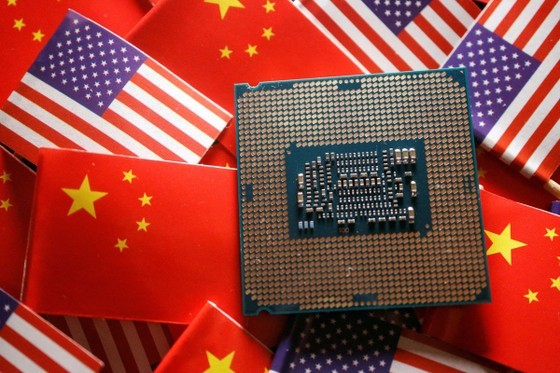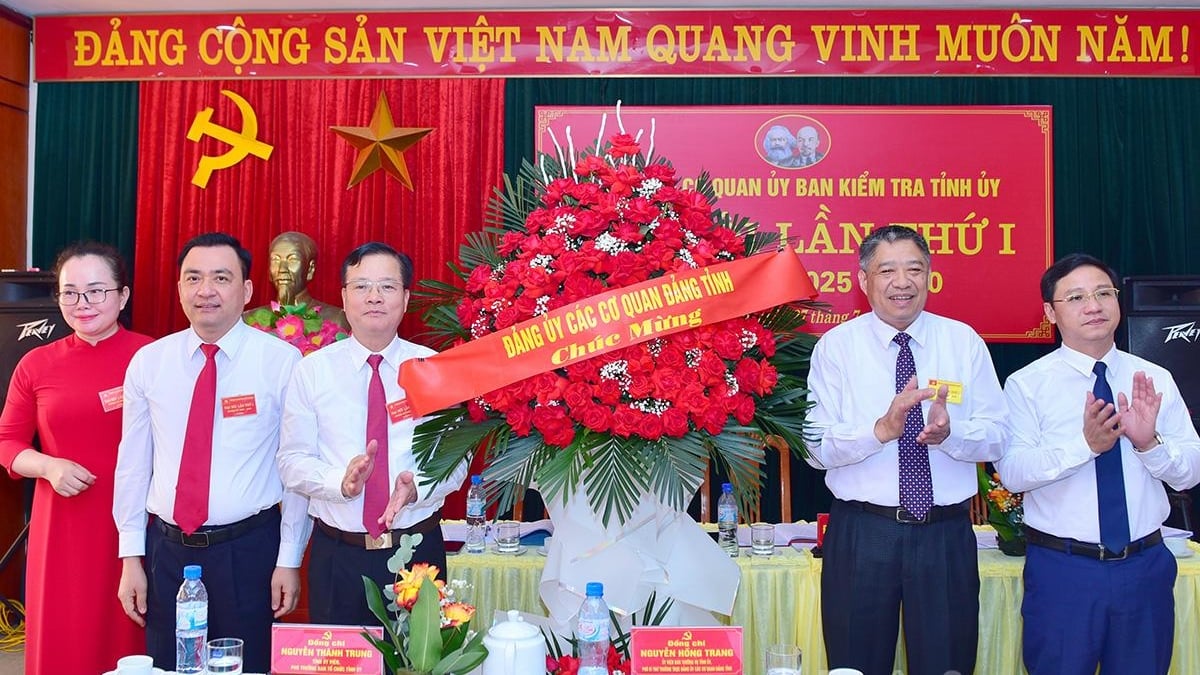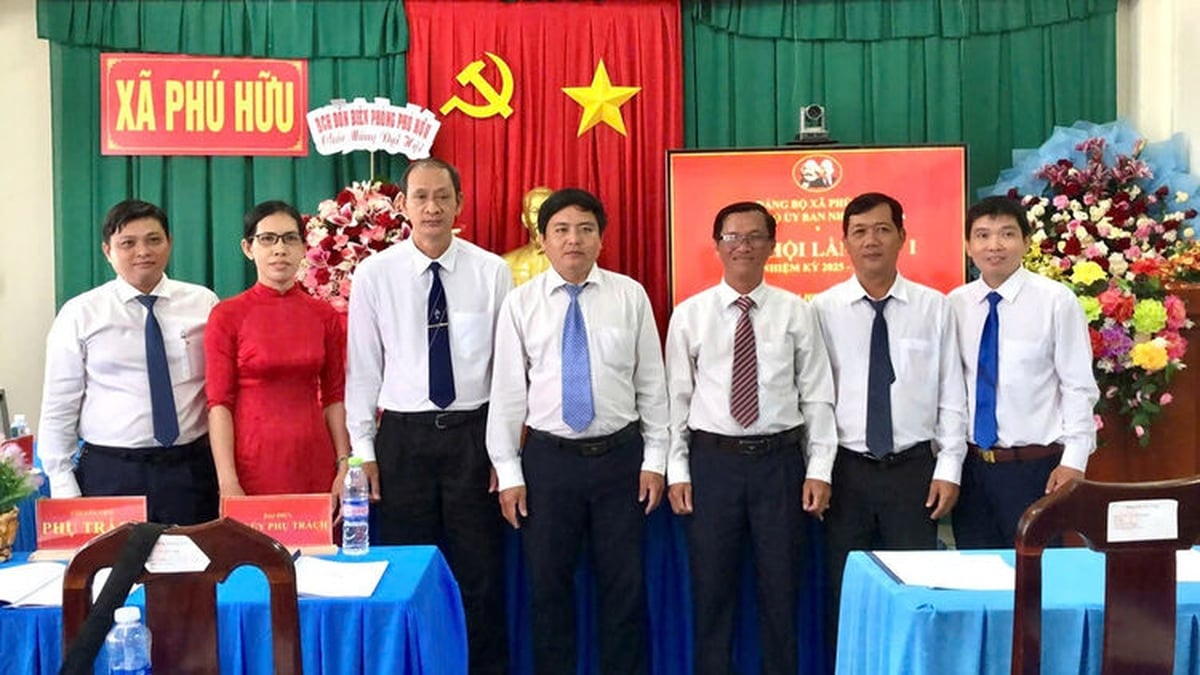 |
| China plays its trump card (Source: Reuters) |
Recently, on July 3, Beijing announced that it would apply export controls on two important metals needed for semiconductor production.
According to the guidance of the Ministry of Commerce and China's Customs, starting from August 1, the export of gallium and germanium will require a license, in which the purpose of the export and the final unit receiving the export shipment must be clearly declared.
The ministry added that "protecting national security and interests" was the main reason for issuing these measures.
China "plays trump card"
Last October, the Biden administration announced a series of export controls that would bar Chinese companies from buying advanced chips and chipmaking equipment without a license. For the restrictions to be effective, Washington needed other major suppliers, in the Netherlands and Japan, to join in.
In response, the Netherlands announced new export controls on chip manufacturing equipment late last week (June 30).
And Japan, in late March 2023, added 23 items, including advanced semiconductor manufacturing equipment, to its export control list.
CNN commented that Beijing responded to the West by "playing a trump card". Gallium and germanium are important to the global chip manufacturing industry.
China is the world’s leading producer of both gallium and germanium, accounting for 98% of global gallium production and 68% of refinery germanium output, according to the United States Geological Survey (USGS).
“Economies of scale in its extensive mining and processing operations, coupled with state subsidies, have allowed Beijing to export processed minerals at costs that miners elsewhere cannot match, helping the world’s second-largest economy maintain its dominance in many key commodities,” said analysts at consultancy Eurasia Group.
How do businesses react?
On the business side, Mr. Jensen Huang, CEO of Nvidia - one of the world's leading chip manufacturers - said that the restrictions from the US, China, the Netherlands and Japan risk causing "huge damage" to the technology industry.
As of February 2023, Nvidia's revenue from China and Hong Kong (China) fell nearly 20% year-on-year.
Nvidia CFO Colette Kress also worries that, in the long run, the restrictions “will result in the US industry permanently losing the opportunity to compete and lead in one of the largest markets in the world.”
According to Ms. Kress, the Chinese market generates 20%-25% of the company's revenue, including products other than chips for the purpose of developing artificial intelligence (AI).
Chinese companies are also feeling the pressure. Data from China’s General Administration of Customs shows that chip imports fell nearly 30% in the first five months of this year compared to the same period in 2022.
Before restricting gallium and germanium exports, Beijing also banned the use of chips made by the US company Micron in critical infrastructure projects. But Chinese companies still want these high-end chips. According to the Financial Times , some companies are leasing chips or buying them through intermediaries.
Rare earths - next target?
Analysts say Beijing could escalate its response further if moves to control gallium and germanium exports fail to convince the US to back down.
Rare earths - a crucial ingredient in the manufacture of semiconductors - could be the next target, according to investment bank Jefferies.
However, analysts from Eurasia Group warn that restricting rare earth exports would be a “double-edged sword”.
| Eurasia Group: China's export controls are a “warning shot”. |
China’s past efforts to leverage its dominance of rare earths have reduced supply and driven up prices. Higher prices have made Chinese rare earths more competitive with producers in other countries.
In 2010, the world’s second-largest economy cut its export quotas for rare earths amid tensions with Washington, prompting companies outside China to ramp up their production of the element. China’s global market share fell from 97% in 2010 to about 60% in 2019, US data show.
Not a "fatal blow"
The United States is particularly dependent on China for two key elements: gallium and germanium. The USGS said it imported more than 50% of its gallium and germanium in 2021 from China.
China's export controls are a “warning shot,” analysts at Eurasia Group described.
“This is a ‘shot across the bow’ intended to remind countries including the US, Japan and the Netherlands that China has options to retaliate,” Eurasia Group wrote.
Mr. Paul Triolo, an expert at the US-based Center for Strategic and International Studies (CSIS), commented that if China chooses to "weaponize" the supply chain of the above substances, the problem of reducing dependence on the West (including the US and Europe) will become more complicated.
“It is almost certain that Beijing sees these controls as a potential bargaining chip to persuade the US and the West to roll back recent export controls on semiconductors,” the expert stressed.
Analysts at Jefferies Bank also noted that the US has at least two days to “digest and respond” to China’s decision. However, this move is not considered a “fatal blow” to the US and its allies.
Eurasia Group also points out that China may be the world’s leading producer of gallium and germanium, but there are substitutes and producers for both minerals. In addition to the world’s second-largest economy, the United States imports a fifth of its gallium from the United Kingdom and Germany, and buys more than 30% of its germanium from Belgium and Germany.
Source


































































































Comment (0)